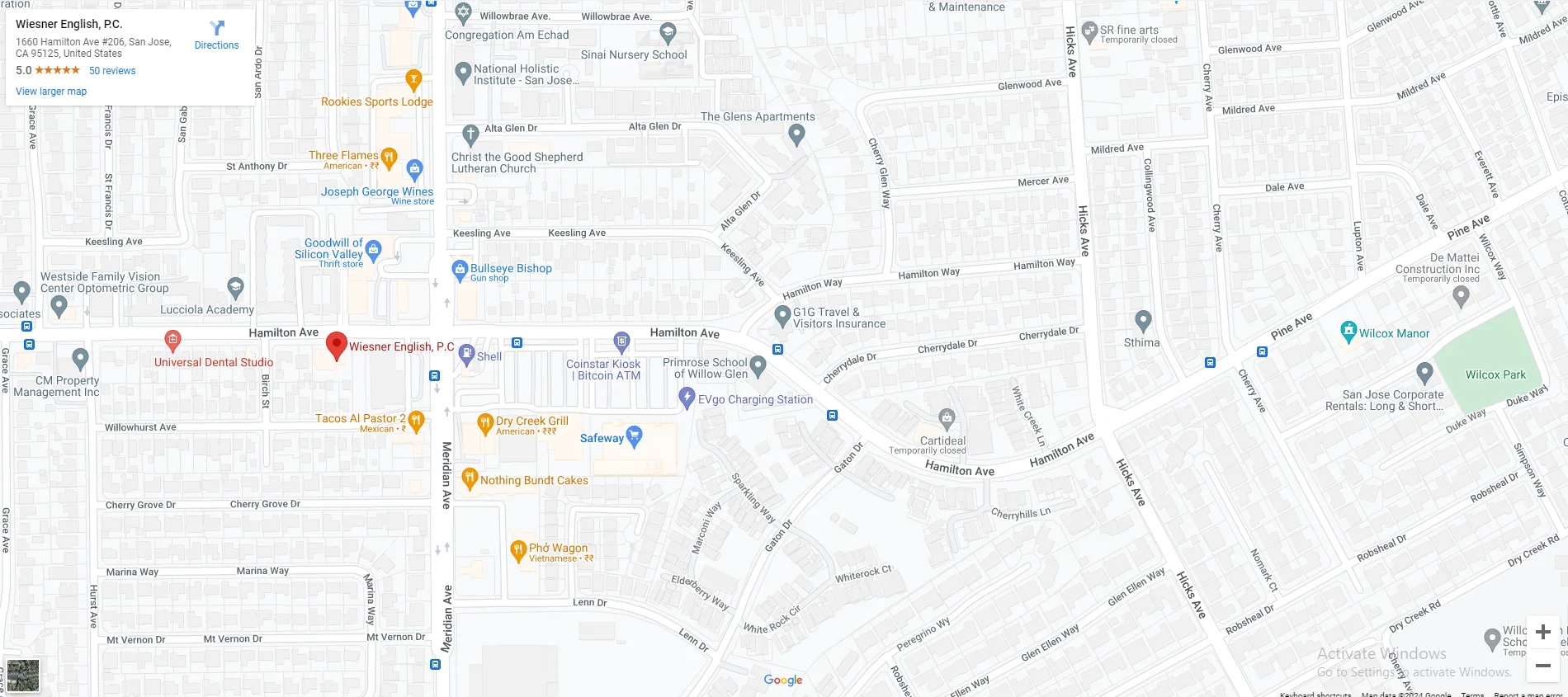|
|
Last Modified on Dec 31, 2024
Workplace injuries are more common than you might expect. California workers’ compensation laws explain the processes and benefits afforded to injured workers in the state. Understanding these laws can help you protect your job and income following a workplace injury or illness.
You can better prepare for potential workplace accidents by knowing what constitutes a work injury, which benefits are covered under the law, and what steps you need to take to file and win a workers’ compensation claim.
California Workers’ Compensation Laws Explained
California requires most employers to carry workers’ compensation insurance for their employees from the first day of work to protect employees’ jobs and income if they are injured on the job. Workers’ Comp insurance may cover full-time, part-time, and seasonal employees, regardless of immigration status.
California’s Department of Industrial Relations defines a workplace injury as arising from:
- A one-time event – a work accident that takes place at a specific time and place and leads to an injury. This can be a fall or slip, exposure to a harsh chemical that leads to a burn, or any other event that causes immediate bodily harm.
- Repeated exposures at work – repetitive actions you perform at work or common exposures at work that result in long-term chronic pain, vision or hearing loss, or other illnesses that develop over time.
A workplace injury or illness can happen at your place of work or while performing your job duties.
Coverage Available Under California Workers’ Compensation Laws
An approved workers’ compensation claim may entitle a California employee to the following:
- Medical care and coverage of medical expenses
- Temporary or permanent disability benefits
- Changes to their work schedule and responsibilities
- Job protection while out on injury
- Death benefits
The monetary value and length of each benefit are determined by the claims administrator based on the employer’s industry, the employee’s wages and number of dependents, and the nature of the injury or illness, among other factors. Employees in certain professions, like law enforcement and members of unions or labor organizations, may be entitled to additional workers’ compensation benefits.
Applying for Workers’ Compensation in California
After a work injury, you should follow certain key steps to ensure the success of your workers’ compensation claim:
- Report your injury as soon as possible. California’s Department of Industrial Relations recommends that work accidents and illnesses be reported within 30 days. As soon as you become aware of your work-related illness, you should report it to your employer.
- Receive medical care as soon as possible following an incident. You should inform the medical team treating you that your injuries were a result of a workplace accident or exposure at work. Ensure you obtain a detailed medical report for your claim.
- Complete a workers’ compensation claim. Your employer should provide a claim form after you report the incident. Once you complete your portion of the claim form, return it to your employer.
- Request a copy of the claim. Once you submit your workers’ comp claim to your employer, it is considered filed. Your employer should then complete a portion of the form and submit it to the claims administrator. Ask for a copy of the completed form if your employer does not immediately provide one.
- Obtain your benefits. If your claim is accepted, the workers’ compensation claims administrator should send your benefits within a specified period of time.
A Workers’ Comp claim approval hinges on properly following the steps outlined in your workers’ compensation information guide, usually provided by your employer. It is recommended that you keep detailed records of your claim, treatment, out-of-pocket medical expenses, and any communication with your employer.
Working With a Workers’ Compensation Attorney Can Help
Despite the protections afforded by California workers’ compensation laws, working with a knowledgeable California workers’ comp attorney can make the process easier. Workers’ compensation in California may be awarded to injured workers regardless of who is at fault for the incident. If you have been denied a Workers’ Comp claim, an attorney can help you challenge the decision.
A Workers’ Comp attorney can also:
- Stand by you through the claims process so that you may receive the most out of your claim.
- Assist you as you request modifications to your work and schedule following an injury.
- Represent you in a personal injury case if your work injury was caused by a third party.
Though California outlines your rights regarding workplace injuries and illnesses, a seasoned attorney can make navigating the workers’ compensation process easier so you can focus on your recovery.
FAQs
What Are the Worker’s Compensation Laws in California?
Workers’ compensation laws in California are measures placed to protect an employee’s job and income following a workplace injury or an illness that developed from performing your work. The laws detail employer Workers’ Comp insurance requirements, who can file a workers’ comp claim and how, and the potential benefits afforded to injured employees.
What Is the 5-Year Rule for Workers’ Comp in California?
The 5-year rule for workers’ comp in California may refer to the amount of time you can receive Temporary Disability payments within a five-year period following your injury. It dictates that you may only receive a set number of weeks in benefits within this period. For certain chronic or acute illnesses, your benefit within these five years may be extended.
How Long Does Workers’ Comp Have to Pay You in California?
The length of time your workers’ comp benefits last depends on several factors, including the nature of your illness and how it might impact your current and future working ability. For temporary disability, there is a specific number of weeks set by law. For permanent disability, you can potentially receive life benefits. A dependent of an employee who dies in a workplace accident may receive benefits until adulthood.
What Is the 90-day Rule for Workers’ Comp in California?
California’s Department of Industrial Relations explains that an approval or denial of your workers’ compensation claim should be issued within 90 days. If an employee does not receive a denial notice from their employer’s claims administrator within 90 days, it is presumed that their claim is valid and they are eligible for Worker’s Comp benefits.
Speak With a California Workers’ Compensation Attorney to Learn More
California workers’ compensation laws may not answer all of your Workers’ Comp questions. Speaking with a knowledgeable workers’ compensation attorney may allow you to better assess the validity of your claim and how much you may be entitled to. Wiesner English, P.C., has worked with injured California employees for decades, helping them get the compensation they deserve. Request a consultation to discuss your workers’ compensation questions.








